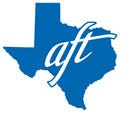House and Senate budgets align, sort of, while school finance bill is slated for a vote; and briefs on crowdsourcing and 100-year-old retired educators
by Rob D’Amico, Texas AFT Communications Director
(Follow on Twitter @damicoaustin and @TexasAFT)
House and Senate budgets align, sort of, around school finance, while HB 3 on school funding and teacher pay will be up for a vote Wednesday.
Last Wednesday the House passed its budget (HB 1), which included funding for its package of school finance bills — the primary being HB 3, which will head to the floor for a vote this Wednesday. (You can read more on our take on the budgets and other legislative news in Friday’s Hotline.) So it was the Senate’s turn to get moving on its budget bill (SB 1) on Thursday.
The Texas Tribune headline summed up the Senate’s work with, “Texas Senate aligns with House on how much to spend on education, property tax reform: Both chambers now want to put $9 billion toward public schools and levy reductions. But they disagree about how to spread it out.” The piece features some changes to the Senate funding plan spearheaded by Sen. Larry Taylor (R-Friendswood), who chairs the Senate Education Committee and serves on its budget-writing Finance Committee.
….[Taylor] said that a committee workgroup he led that had examined possible changes to education spending wanted to revise the upper chamber’s base spending plan to include $4 billion to boost teacher and librarian pay, $2.3 billion for a school finance overhaul and $2.7 billion for property tax relief. The committee approved the changes unanimously.
While the revisions put the two chambers on the same page with regard to property tax relief, they set the stage for heated negotiations over how much to spend on school finance reform and educator pay raises, which have emerged as major sticking points between the two chambers.
Remember that about $3 billion of the $9 billion you’ll be seeing continually in these numbers is dedicated to “property tax relief,” although there likely will be other big benefits to districts like revaluations on tax revenue and reduced amounts of recapture — AKA Robin Hood payments.
In the Austin American-Statesman coverage, Texas AFT President Louis Malfaro reiterated our position that these proposals are significant down payments on what is needed, sowing the seeds that this kind of investment in public education needs to continue in the future.
[Malfaro] said the school funding increases both chambers have proposed are good first steps, but that more work needs to be done, including a state calculation of the actual cost of education. “We don’t expect one cycle of the Legislature to make amends for all the sins of the past,” Malfaro said.
The unanimous vote approving the House budget (149–0) put the school finance bill, HB 3, in a good position for enthusiastic passage on Wednesday. But the bill also will face an onslaught of amendments on the floor, so we’ll keep pushing the message to Fund Our Future. We’ll also be following any attempts to reinstate pay-for-test-scores provisions that were taken out of the original bill.
Meanwhile, not all superintendents are on the same page with their educators regarding pay for test scores, as the The McAllen Monitor reports, including comments from our PSJA AFT president. Two Valley superintendents signed on to a letter wanting pay for test scores added back to HB 3.
Jose Gonzalez and Daniel King, superintendents for the McAllen and Pharr-San Juan-Alamo school districts, respectively, signed onto a March 18 letter that a group of 25 other Texas superintendents sent [to state officials] “specifically advocate for the new effective educator allotments” outlined in House Bill 3 and Senate Bill 4.
….However, Zachary Holzworth, AFT’s PSJA chapter president, opposes…pay based on standardized testing results. This can be problematic as some schools will focus too much on teaching to pass a test, he said, and it “doesn’t show you the quality of the teacher, it shows you which teachers are getting the students that have the fewest needs.”
In Brief…
- The Austin American-Statesman on “Fact-check: How many retired teachers in Texas are over 100 years old?” Turns out the Teacher Retirement System of Texas says there are 321!
- Vox reports on “Teachers often have to crowdfund for classroom supplies. Some districts are banning the practice.” Apparently officials worry about teachers pocketing the money from sites like DonorsChoose, even though the site has strict safeguards against personal gain. The controversy originally was covered in Education Week, which notes:
Research published last year from Texas State University examined four schools in a Texas district, all of which had relied heavily on DonorsChoose over the course of a decade — each school had raised at least $25,000 through the site from 2006 to 2017.
